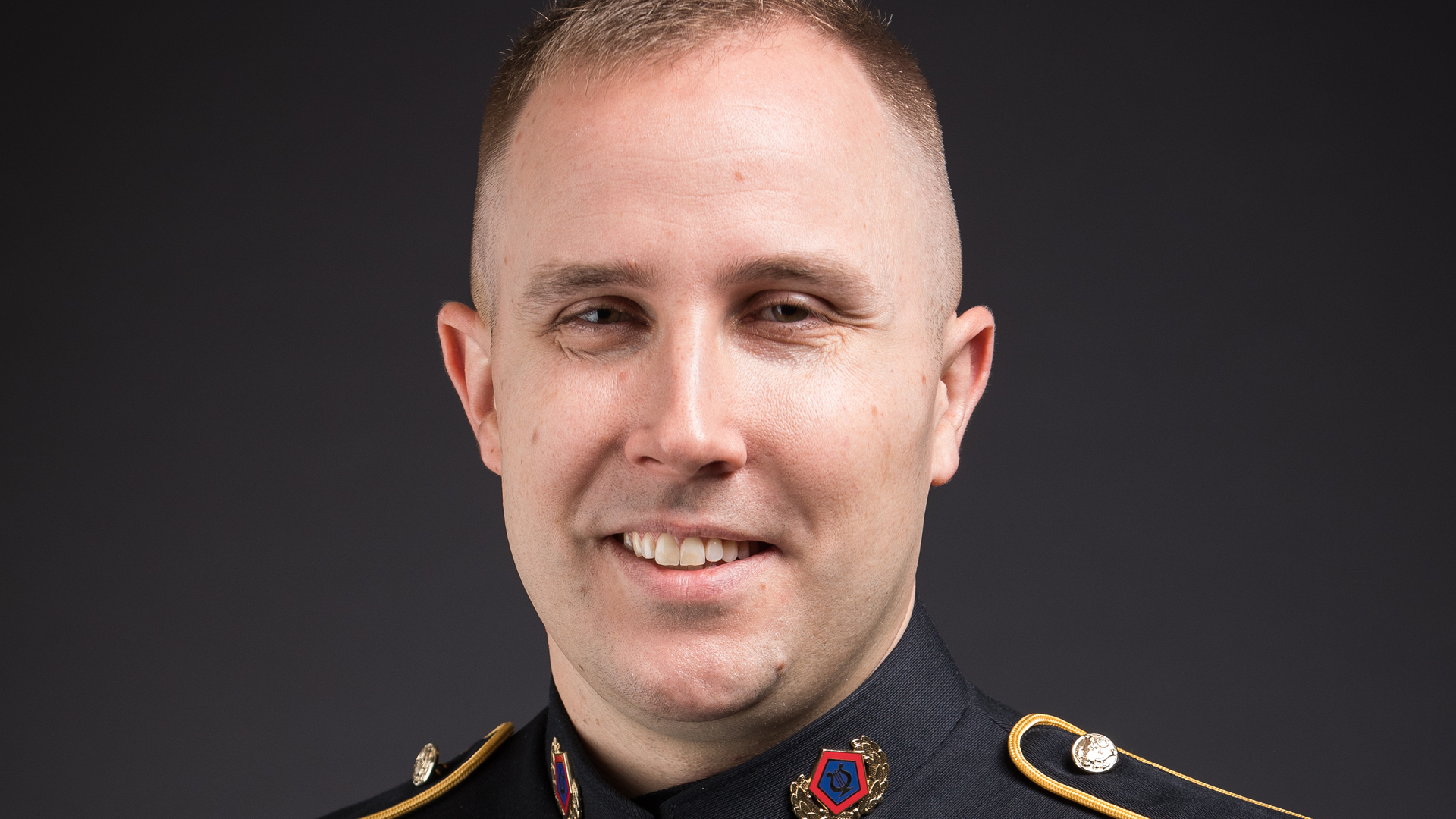by Adam Grybowski
On the day when he was selected to become a member of the U.S. Army Field Band in 2014, Tim Coombs ’09 walked outside, called his parents and, as he recalls it, bawled his eyes out.
The Field Band has served as the musical ambassador of the U.S. Army since 1946. Since then, it has inspired countless audiences as it supports veterans and diplomacy. Joining the Field Band requires, in addition to coming out on top during auditions, a minimum of a four-year enlistment but it’s common for members to stay on much longer, often for decades. Coombs knew he had locked in a secure career doing the thing he loved most: singing.
At the time, Coombs had been working in a corporate office while performing side gigs. He anticipated, with fear, a future when those gigs would possibly fall away in the face of other pressures. “The gigs that I was doing didn’t pay enough to make a living,” Coombs says, “but the fulfillment they brought to my heart was overflowing.”
Coombs was promoted to sergeant first class in February. He points out that the U.S. government is the largest employer of musicians in the country. Each branch of the armed forces can have several bands in addition to premier bands that perform a wide variety of styles and genres. “You see these bands play on TV for the president without even realizing it’s a military job,” Coombs says. “I wish I would have known about this opportunity sooner.”
Over the years, Coombs, who received a bachelor’s in music education from Westminster Choir College, where he met his wife, Mallory Coombs ’13, a musical theatre major at Rider, has performed for presidents and other world leaders at various functions and ceremonies, including the funeral of President George H. W. Bush. In addition to these kinds of prestigious events, the Field Band also embarks upon regular tours that take it to schools and communities across the nation. They are on the road about 100 days of the year (absent a pandemic), divided up roughly between three tours.
“Our goal is to connect our army to the public and thank our veterans,” Coombs says. “We bring the Army to the grassroots of America.”
Tours have brought Coombs back to his high school (he’s originally from South Brunswick, N.J.) and college. After the Field Band performed at Westminster a couple of years ago, the Westminster Choir sang the Lutkin Benediction for their guests in return. “My commander still talks about that performance to this day,” Coombs says.
The Field Band is renowned for its inspirational performances and eclectic range of repertoire, but their combat skills may be what definitively set them apart from other ensembles. Military musicians must go through basic training, even if the likelihood of facing active combat remains relatively small. Coombs completed his training over 10 weeks at Fort Jackson in South Carolina.
“At the end of the day, you have to remember what you signed up for,” he says. “First and foremost, you’re a soldier.”

